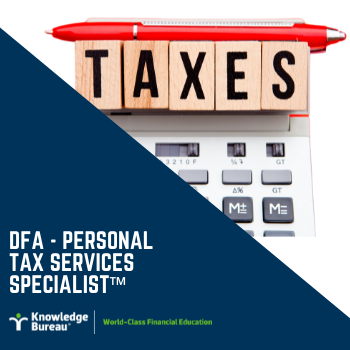T1s Due June 15: Proprietors Must File for More Reasons Than One!

Unincorporated taxpayers must file their personal tax returns by June 15 or face late filing penalties. However, there are many more reasons to file than just to report and pay your taxes. Here’s a rundown of the obligations:
- T1 returns must be filed to report income from self-employment as well as other income of the year.This includes COVID relief benefits, which must be included as business income on the last day the claim period relates to.Alternatively, expenses may be reduced by the amounts claimed. Included are the following benefits:
- CERS – Canada Emergency Rent Subsidy
- CEWS – Canada Emergency Wage Subsidy
- CRHP -Canada Recovery Hiring Program
- HHBRP - Hardest-Hit Business Recovery Program
- Local Lockdown Program
- THRP – Tourism and Hospitality Recovery Program
- Taxes due: Taxes owing taxable income will be increased by required contributions on self-employed net income to the Canada Pension Plan (CPP) and Employment
 Insurance (EI) if this was elected. Even though tax returns can be filed on June 15, those who owe must pay their taxes on the individual tax filing due date. That is usually on April 30, but this year that date was on the weekend. Therefore, outstanding taxes were due on May 2.
Insurance (EI) if this was elected. Even though tax returns can be filed on June 15, those who owe must pay their taxes on the individual tax filing due date. That is usually on April 30, but this year that date was on the weekend. Therefore, outstanding taxes were due on May 2.
- Interest due: This will accrue at the prescribed rate plus 4%. That is an expensive outcome and for those reasons, using lines of credit to pay for CRA bills may be a less expensive option. Can’t pay? The collections department will negotiate for payment over time and tax accountants can be very helpful in this regard.
- Canada Emergency Benefit Account (CEBA) Loans: The forgivable portion of these loans must be reported in the year the loan was received. If the non-forgivable portion of the loan is not repaid by December 31, 2023, the entire amount received becomes taxable and an adjustment will have to be made for the amounts previously reported as income.
- Farmers’ Fuel Tax Rebate:Farmers in Alberta, Saskatchewan, Manitoba and Ontario qualify for a new refundable tax credit starting in 2021 as a partial return of the carbon pollution pricing system. The government notes that eligible expenses must be $25,000 or more, and the rebate is $1.47 per $1000 in eligible expenses in 2021; it will increase to $1.73 in 2022. A form must be completed with the 2021 income tax return: Form T2043, Return of Fuel Charge Proceeds to Farmers Tax Credit.
However, there is a problem: The legislation to enable the tax credit has still not received Royal Asset at the time of writing. These tax returns will be held up, together with the refunds owed, until this happens.
Bottom Line: Tax season may be drawing to a close but there are lots of outstanding issues to deal with throughout the summer. Reassessment season is a good example of this. Be sure your clients are paying only the correct amount of tax and no more.